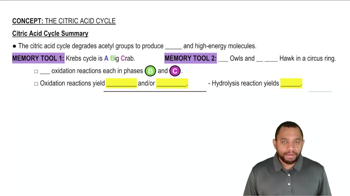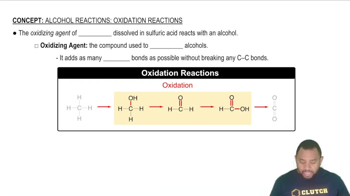Textbook Question
Identify the type of food—carbohydrate, fat, or protein—that gives each of the following digestion products:
b. fatty acid
3
views
 Verified step by step guidance
Verified step by step guidance



Identify the type of food—carbohydrate, fat, or protein—that gives each of the following digestion products:
b. fatty acid
Identify the type of food—carbohydrate, fat, or protein—that gives each of the following digestion products:
d. glycerol
If glycolysis occurs in the cytoplasm and the citric acid cycle occurs in the mitochondrial matrix, how do the products of glycolysis get inside the mitochondrial matrix?
Refer to the diagram of the citric acid cycle in Figure 12.11 to answer each of the following:
c. Name the reaction that is coupled to GTP formation.
If there are no reactions in the citric acid cycle that use oxygen, O₂, why does the cycle operate only in aerobic conditions?
Identify the following as the reduced or oxidized form:
a. NAD⁺